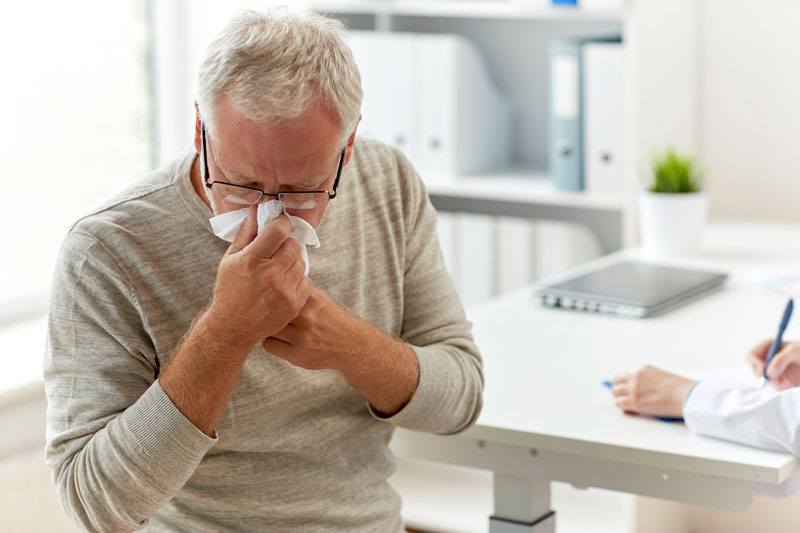
We’re all familiar with the signs. A fine layer of yellow dust on the sidewalks and on your car. Constant runny nose and sneezing, accompanied by itchy, watery eyes. When they start, that means it’s allergy season and if you suffer from seasonal allergies, you’re among the 50 million people in the U.S. who deal with it every year.
Indeed, allergies affect people of all ages. For seniors, however, allergy season can be even more unpleasant, even dangerous, depending on any underlying health issues that may also be present and how those conditions are being treated. Part of the problem is that allergies usually lead to runny nose, sinus congestion, and other respiratory challenges. Under normal circumstances, these symptoms are little more than an annoyance.
However, for seniors who maybe suffering from chronic obstructive pulmonary disease (COPD) or asthma, or general cardiovascular conditions, the excessive mucus can affect lung function, potentially causing an infection, bronchitis, or even pneumonia. Moreover, many over-the-counter treatments for seasonal allergies, such as antihistamines, should be avoided if you are being treated for a condition like hypertension because dangerous side effects can occur.
If you or someone in your care is suffering from seasonal allergies, there are a few guidelines you can follow to lessen the impact and minimize the risk of a major health problem.
Learn to recognize the symptoms.
The symptoms for seasonal allergy sufferers are the same regardless of age and generally include:
- Postnasal drainage
- Runny nose or feeling stuffed up
- Coughing and/or sneezing
- Ear congestion
- Itchy throat, sinuses, or ear canals
- Watery, irritated eyes
For seniors, however, it’s important to remember that one out of every seven suffer from some kind of lung disease, according to the Centers for Disease Control. As a result, many seniors who could easily be treated for the symptoms of their allergies don’t seek treatment because they attribute that persistent cough or congestion to their existing respiratory issues.
Recognize and avoid triggers.
People are unique, which means the triggers that cause allergies to flare up will vary from one person to the next. Pay attention to what’s going on in your immediate environment when these flare-ups take place. That way, you can take steps to avoid them or at least minimize exposure to them.
Some of the more common triggers include pollen from pine trees and other plants, grass, dust, smoke, and chlorine, as well as mold, which can actually cause health issues that are far more severe than an allergic reaction. As you keep your eyes open for common allergy symptoms such as a runny nose, sneezing, or itchy eyes, make a mental note of the environment that seems to be causing them.
Sometimes, the best thing you can do for someone who is having a hard time with seasonal allergies is to spend as much time as possible indoors when the irritant is at its highest levels. It is important that the home be well ventilated to keep dust out of the air as much as possible. Also, make sure that the person suffering from the allergies takes regular baths or showers and changes into clean clothes frequently to avoid carrying potential irritants around with them on their clothes or skin.
Keep your physician in the loop.
When allergy season hits, don’t just brush it off as harmless, even if that’s what you’ve done most of your life. As you age, allergies need to be treated as a real medical condition that may require treatment. Keep your doctor informed about your symptoms and any OTC medications you may be taking because, as mentioned earlier, some of these medications could make existing health issues worse. Plus, your doctor may be able to prescribe a treatment that is safer.

